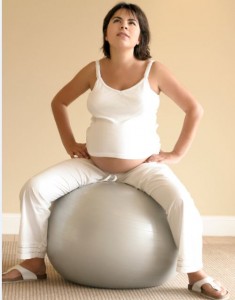How exercise helps :
 Being active and exercising helps the pregnant woman adjust to physical changes in the body during pregnancy and has many other benefits. It also helps to strengthen muscles and reduce backaches, constipation, swelling of the feet and even varicose veins. Exercise in pregnancy can also help prevent gestational diabetes and hypertension in pregnancy.
Being active and exercising helps the pregnant woman adjust to physical changes in the body during pregnancy and has many other benefits. It also helps to strengthen muscles and reduce backaches, constipation, swelling of the feet and even varicose veins. Exercise in pregnancy can also help prevent gestational diabetes and hypertension in pregnancy.
Exercise will boost your energy levels and improves your mood and general well-being. Staying fit also helps to reduce feelings of stress and depression, and helps you sleep better.
Regular exercise in pregnancy will also keep you fit during pregnancy and improve your ability to cope during labour.
What exercise is useful
Walking is a good exercise. It is easy and anyone can do it.
Swimming is another great exercise as it works out many muscle groups.
Aerobic exercises such as running and aqua aerobics help to increase your blood circulation thus more oxygen will reach your muscles. However, you should modify your routine accordingly throughout the pregnancy. Check with your obstetrician on the safety of the exercises you plan to do.
When can exercise be done?
If you have exercised regularly prior to your pregnancy, you should be able to continue during your pregnancy unless you have any unusual symptoms or vaginal bleeding. Check with your obstetrician if you are unsure.
Dos & Don’ts
The main purpose of exercise during pregnancy is to stay fit and not to increase fitness. Depending on your lifestyle before your pregnancy, your exercise programme should suit your fitness level. However, as the pregnancy progresses, you should gradually reduce your overall activity level.
Due to hormonal changes during your pregnancy, your joints become more lax and this will increase your chances of injuring yourself. You can consider wearing pelvic support belts during exercises and should avoid sudden changes in direction to reduce the risk of physical injury. Always have some warm-up and cooling down exercises prior to exercising and after so as not to over-exert yourself.
You should keep yourself well-hydrated and drink plenty of water to prevent dehydration. Always start slow if you have not been exercising in awhile.
Wear comfortable clothing that will help you remain cool and a supportive bra.
You should avoid exercises that involve lying flat on your back for long periods of time especially after the 1st trimester. Avoid contact sports that put you at risk of being hit in the abdomen. If possible, also avoid exercises that have a possibility of you falling or losing your balance such as gymnastics, horse riding, skiing etc.
Scuba diving should be avoided throughout the whole pregnancy as your baby has no protection against decompression sickness or gas embolism.
Avoid exercising at high climates unless you are acclimatized to the altitude.
By Dr Claudine Tan,
Obstetrician and Gynaecologist at SBCC Women’s Clinic






